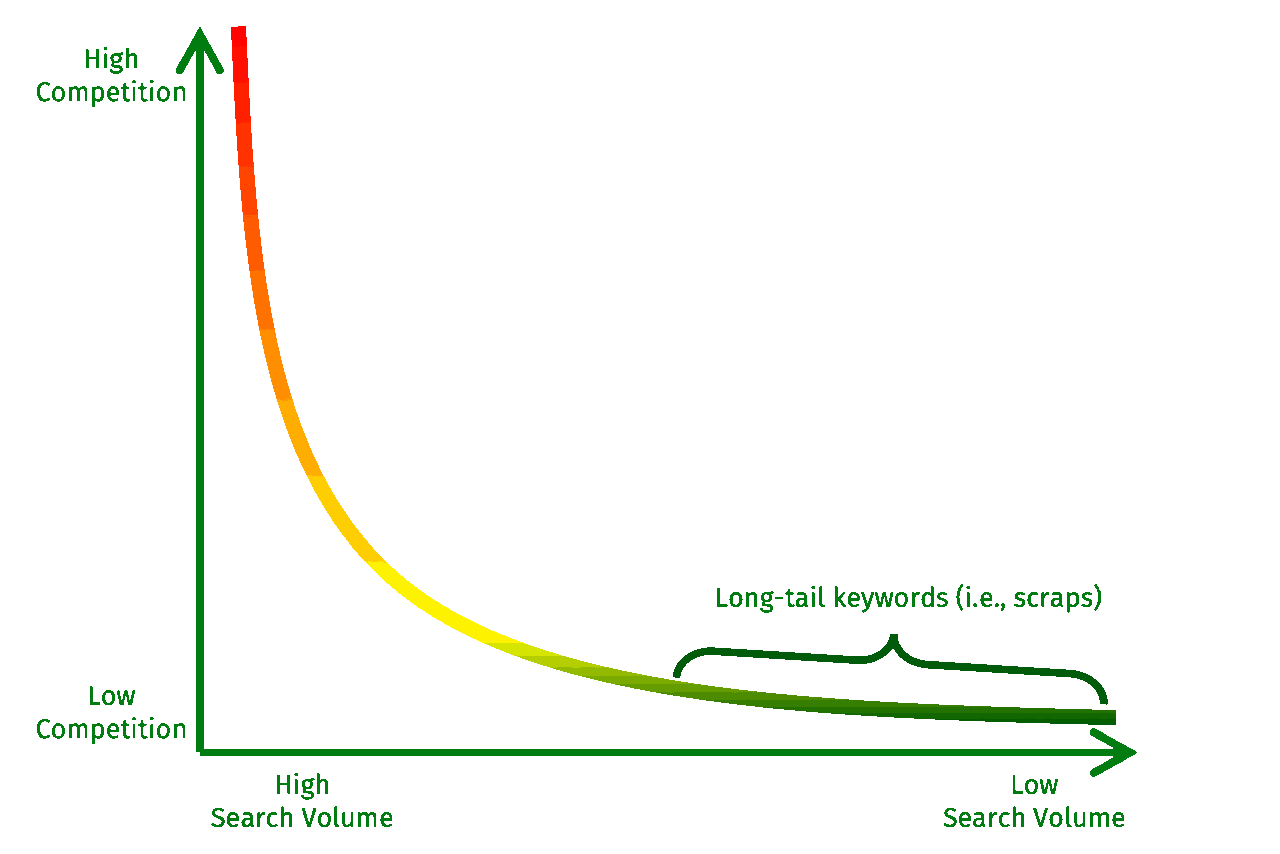Traditional Keyword Selection
For years, Internet Marketers have chased keywords that are the perfect combination of high search volume and low competition. Basically, they chased unicorns.
High search volume keywords are searched as much as possible every month. Low competition keywords are generally those that have little to no content ranking for it. When you target low competition keywords, your chances of ranking at the top of search results, or at least the first page, are higher.

Why Traditional Doesn’t Cut It Anymore
Today’s internet is more competitive than ever, with the total number of active websites in the hundreds of millions. It has become more and more difficult to find high search volume keywords that would be easy to rank for.
As a result of the internet’s continuous evolution, Internet Marketing changes very rapidly. Every two or three years things get turned upside down and revolutionized. Google periodically changes their search engine algorithm so websites that use shady techniques to rank high on search result pages are penalized and websites that have high-quality content (i.e., more useful for Google’s users) are ranked higher.
Of course, all algorithms have their weaknesses. With a little technical know-how, you can beat Google at their own game. Trying this strategy is a terribly difficult way of ranking your website, though. Google is aware that people try to find ways around their algorithms and actively work to block and circumvent them. You’ll be much better off and waste less time playing by Google’s rules and creating high-quality content rather than trying to game the system.
Because of (or maybe in spite of) the internet’s rapid changes, higher search volume keywords are usually dominated by high-authority established websites. These websites have been around for a long time and have hundreds, if not thousands, of pages of high-quality content. The reason these sites devote resources to creating content that targets higher search volume keywords is to rank for those keywords and get more traffic, creating more opportunities to make money.
Those who are just starting out in Internet Marketing have very little chance to compete with these big websites in terms of resources and content. So, what’s a beginner to do?
Flip the Script: Scraps Today, Feasts Tomorrow
Instead of searching for high search volume and low competition keywords, build up your site by picking up the scraps that all of the big boys are leaving behind. Most of these authority sites want nothing to do with a keyword that has 30, 100, or 500 searches a month. Why would they if they can target keywords that have a thousand or more searches a month?

Build on the scraps the giants are leaving behind. These keywords may have 15, 30, 45, or 100 searches a month, but, in time, your website’s authority will build on those little scraps and you’ll eventually be able to compete with high-authority sites. It takes at least 6 to 12 months to get there, but you may start seeing traction before then, even with lower search volume keywords.
Turning out high-quality content that directly targets lower search volume keywords that are being overlooked adds up over time. Instead of spending the next eight months trying to rank a single keyword that gets 5,000 searches a month, spend those months focusing on dozens of keywords that have 30 to 100 searches a month. In today’s search climate you’ll have a better shot at getting ranked for many of those lower search volume keywords than getting ranked for one high search volume keyword in the same amount of time.
People are going to start noticing you as your content gets ranked for lower search volume keyword articles and you build your website’s authority. They will link to your content and talk about you in various forums. The more your site gets talked about, the more credibility and authority your site gains, and you can eventually use this authority to rank for moderate-to-high competition keywords.
This process will take some time to get to the point where your site is seeing success. Once it gets to that tipping point, tremendous growth follows, which is a sign of gaining authority. What you’ve written prior to this tipping point also begins to rank in search engine results because your authority is building.
This is why for early-stage blogs, especially those that don’t have a large marketing budget, frequent publishing of high-quality content is common. This is why only aiming for desirable search terms that have a few thousand searches each month is going to result in disappointment. And this is why you should steer clear of Internet Marketers who tell you otherwise.